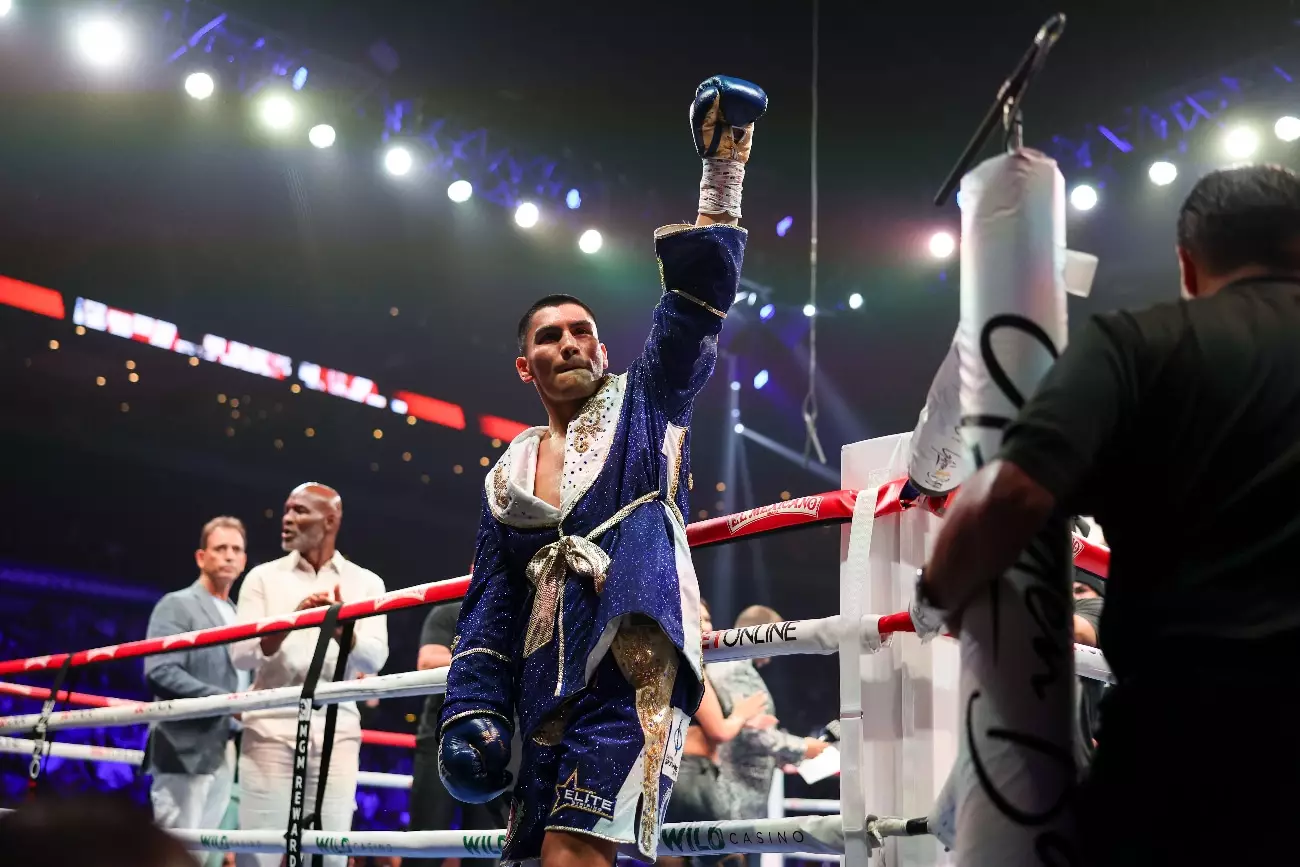The boxing world was buzzing with anticipation for a high-stakes showdown between WBC interim junior middleweight champion Vergil Ortiz Jr. and the talented Jaron “Boots” Ennis, slated for February 22nd in Riyadh, Saudi Arabia. However, the excitement has dissipated following the news that negotiations have collapsed, leaving fans disappointed and bewildered. Speculation surrounding the reasons for the failure of these talks suggests that weight-related disputes may have played a pivotal role in derailing what was projected to be an electrifying matchup.
Reports indicate that the Ennis camp sought to fight at a welterweight limit of 147 pounds, a stipulation that Ortiz could not accommodate. Given that Ortiz has built his professional reputation (22 wins and 21 knockouts) on a punishing style and a significant size advantage at junior middleweight, any adjustment in his fighting weight could significantly undermine his strength and effectiveness in the ring. While Ennis’s desire for an advantageous weight category is understandable, it raises questions about his confidence and willingness to face a formidable opponent without the safety net of favoring conditions.
It appears that Jaron Ennis, despite being an undefeated prospect, may have opted for a strategic retreat. His recent performance against Karen Chukhadzhian on November 9th further amplified doubts about his readiness to tackle Ortiz head-on. Ennis, who had been widely lauded for his skills, encountered significant challenges during that bout, raising concerns that prompted him to reevaluate his approach to upcoming fights. Facing Ortiz, who is recognized for his power and finishing ability, could have represented a risk too great for Ennis at this juncture in his career.
Additionally, Eddie Hearn, Ennis’s promoter, hinted at a focus on unification fights within the welterweight division, emphasizing the importance of preserving his IBF title rather than risking it all in an unfamiliar weight class against a fighter like Ortiz. In the eyes of many analysts, this indicates a cautious, yet strategic, career progression aimed at maximizing Ennis’s potential in a highly competitive division rather than engaging in a daunting challenge prematurely.
The unfortunate fallout from the negotiation breakdown is not just a setback for Ennis but also poses an urgent dilemma for Vergil Ortiz Jr. and the event organizers. With the fight “cratering,” as reported by Dan Rafael, the search is now on for an alternative opponent to ensure that Ortiz still features prominently in the highly publicized card designed to showcase elite boxing talent. Fortunately for boxing fans, the commitment to finding a suitable replacement reflects the importance of maintaining excitement and momentum in the sport.
Sebastian Fundora, another promising fighter, will not be stepping in to fill the void due to pre-existing commitments, again complicating the landscape for Ortiz. As negotiations with prospective opponents unfold, there lies an inherent uncertainty about who will take the challenge and whether they can deliver a competitive matchup worthy of this high-profile event in Riyadh.
This situation exemplifies the complexities of boxing negotiations, where even the highest-stakes matchups can suddenly unravel. Both Ortiz and Ennis will need to chart their paths forward carefully, balancing ambition with strategic decision-making in a sport that thrives on both talent and timing.


Leave a Reply